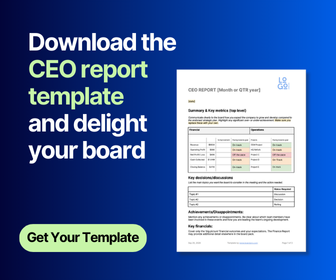Governance culture: going from good to great
A chairman I know recently tabled the following advice from the IoD to set the tone for refreshing a board.
“A board that truly adds value is not just a group of high performing individuals. A good board is a balanced team with complementary skill sets and a culture that allows them to work together to make the most effective decisions for an Organisation. While the leadership from the chair is crucial, it is the full participation of every board member that contributes the most to the effectiveness of the board.”
So how should a director ensure they make this a reality?
Add balance to the team
Small to medium sized organisations (SME) and Not for profits (NFP) have limited resources and require their boards to cover a number of key areas within a finite number of people. Looking for the right role as a director it is important to:
- Understand what the organisation is trying to achieve and determine whether with your skills you can help them get there? Do your homework and say yes slowly once you are convinced that you can add real value.
- Understand your specific skill set on this board. Be reflective on what you bring to the table and how this can be utilised to achieve game changing performance. Where do those skills cover key gaps in this non-executive team?
- Aid fresh thinking. Diversity is greater than titles of gender or age. How people think is influenced by, but not solely the result of their experiences. How do you add to the collective wisdom and also capability of the board to see and explore new step-change opportunities?
- Make the sum better than its parts. Can you work in with your colleagues to deliver a broader perspective? Is this customer knowledge, technical knowhow, geographical experience or something else like fast growth that is a missing ingredient to exponential success?
Contribute to a culture that works together
- Understand the dynamics within the board and the relationship with the key executives. It is recommended to research this up front in the interview process. Corroborate your impressions with people knowledgeable of how things are really working.
- Invest in getting to know the key people around you and their broader interests. This will assist you to understand their points of view along with the why and how they offer their advice. Your colleagues will also appreciate your curiosity in reaching out to them.
- Utilise hard and soft skills. What style of director are you, and do you need to change that up depending on the role and the team around you? Boards often seek an agitator to freshen the thinking and challenge the status quo. Is that what this board needs and is that your role?
- As in all walks of life giving and being open to feedback is key. If the Chair is not communicating take it on yourself to pick up the phone and when in the same town share a hot chocolate.
Participating to the best effect
- Lean in and determine where your skills can speed success. Executives work hard and they generally appreciate advice that makes their jobs easier. There are likely specific skills and or relationships that you hold that can benefit the team. Work out where and when that is, and with the agreement of the chair and CEO, engage.
- Be open and prepared to learn. Unsurprisingly we need to learn every day to maintain our edge. Knowledge not only passes through the board but to and from the executive. In my experience I have learned a great deal from being open to younger agile minds – and not just in the application of the most recent technology.
- Don’t be afraid to express and support your view. You may have insight on a point that is new to your fellow directors. Sharing your knowledge in a way that respects other’s view and maintains their mana, only increases yours.
- Don’t overcommit. There are only so many hours in the day and time you can dedicate to a limited number of priorities at any one time. Board roles are generally for at least 3 years. It pays to look forward to ensure that you can sustain your commitment for your tenure.
Directors work hard to drive the success of the Organisations in which they engage. They strive over their tenure to concentrate on the key drivers for success. As a director of a large company recently shared with me, “they put the lights on full beam so you can avoid the potholes”. This provides a sound footing to turn good into great. And who wants to strive for anything less than that?
Want to know how your board of directors and managers can be more productive and efficient through the use of technology? With BoardPro board software, you can centralise board information, get organised, save time, and reduce hassle. With BoardPro, everything is just a couple of clicks away.
If you're looking for a tool to streamline your Board processes, check out BoardPro - an all-in-one software solution designed specifically for Boards and busy CEOs!
Schedule a demo with our team today and begin to experience a whole new way of meeting.
Share this
You May Also Like
These Related Stories
.png)
Are you Maximising your Board's Return on Attendance at Conferences?
%20(1).png)
Intercultural competence for better decision-making in governance



